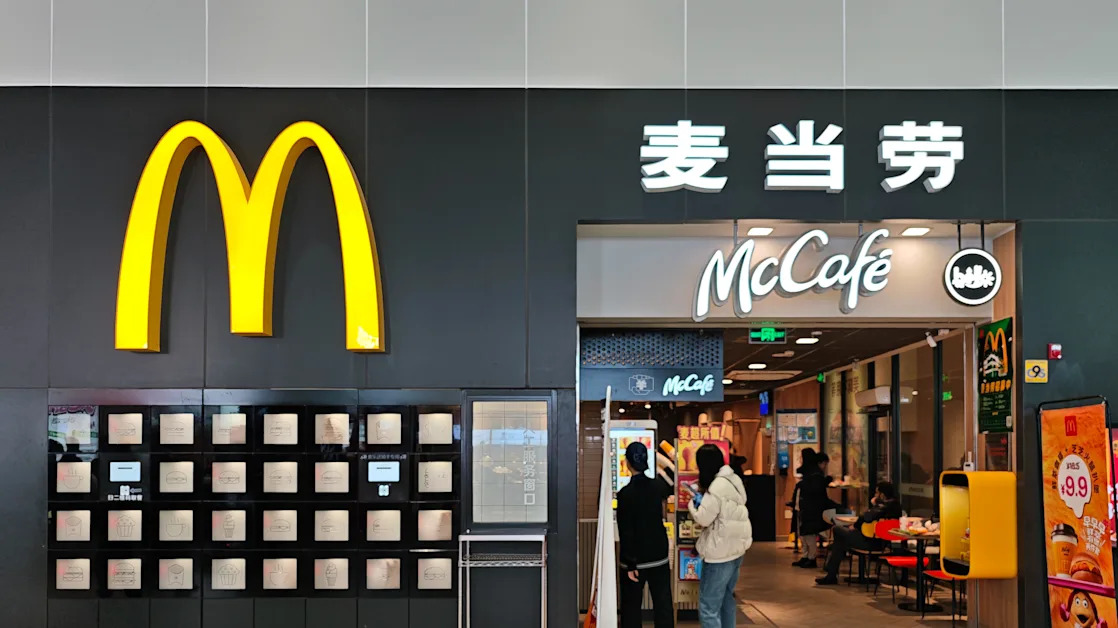
McDonald's, Starbucks, and other US chains could face anti-American pushback, Wall Street fears
As companies scramble to respond to Trump's wide-ranging reciprocal tariffs, anti-American sentiment towards US brands is emerging as another concern.
A baseline tariff of 10% went into effect on April 5, while higher reciprocal tariffs are set to begin on April 9.
For food chains, the headwind from tariffs on commodity imports is relatively small, as many ingredients are domestically grown and most imports from Canada and Mexico are exempt under the United States-Mexico-Canada Agreement (USMCA). But brands like McDonald's ( MCD ), Yum! Brands ( YUM ), Starbucks ( SBUX ), and Domino's ( DPZ ) have exposure to international markets that could hurt them as customers pull back, BTIG analyst Peter Saleh said.
"The bigger issue, in my mind, is the anti-American pushback in these countries on Western or US brands ... we'll see ... what companies say when they start reporting in the next couple of weeks, if they're starting to see that already," Saleh told Yahoo Finance.
Goldman Sachs estimates that foreign boycotts overall will cut US GDP by 0.1% to 0.3% this year, meaning a hit of roughly $28 billion to $83 billion.
Major fast food players were only beginning to turn the tide in their international business after the pandemic. China's "zero-COVID policy" lasted for three years, far longer than US policies. The stringent, prolonged shutdown had major implications for international sales.
Last quarter, McDonald's global same-store sales grew 0.4%, compared to the 0.91% decrease that Wall Street expected. Its US same-store sales were down 1.4% year over year, as an E. coli outbreak offset momentum in late October.
McDonald's international-owned stores saw positive same-store sales growth in the Middle East, which CFO Ian Borden attributed to the lapse of the impact of the Israeli conflict, plus growth in Japan and "encouraging signs of stabilization" in China.
Starbucks is still struggling to see a rebound in its international business. For its Q1 results , total same-store sales was down 4% year over year. International same-store sales fell 4%, and China sales dropped 6%.
Starbucks is facing a stagnant domestic economy and fierce local competition in China. CEO Brian Niccol said he visited and saw firsthand "how dynamic the market is and the opportunities ahead."
Prior to Niccol joining, the team said it was in the "very early stages" of exploring joint ventures and strategic partnerships in technology, real estate, and supply chain in the country.
For Yum China ( YUMC ), which separated from the US operation back in 2016 , fourth quarter same-store sales fell 1% for KFC and 2% for Pizza Hut. CEO Joey Wat called it a "challenging environment" with "value-minded consumers."